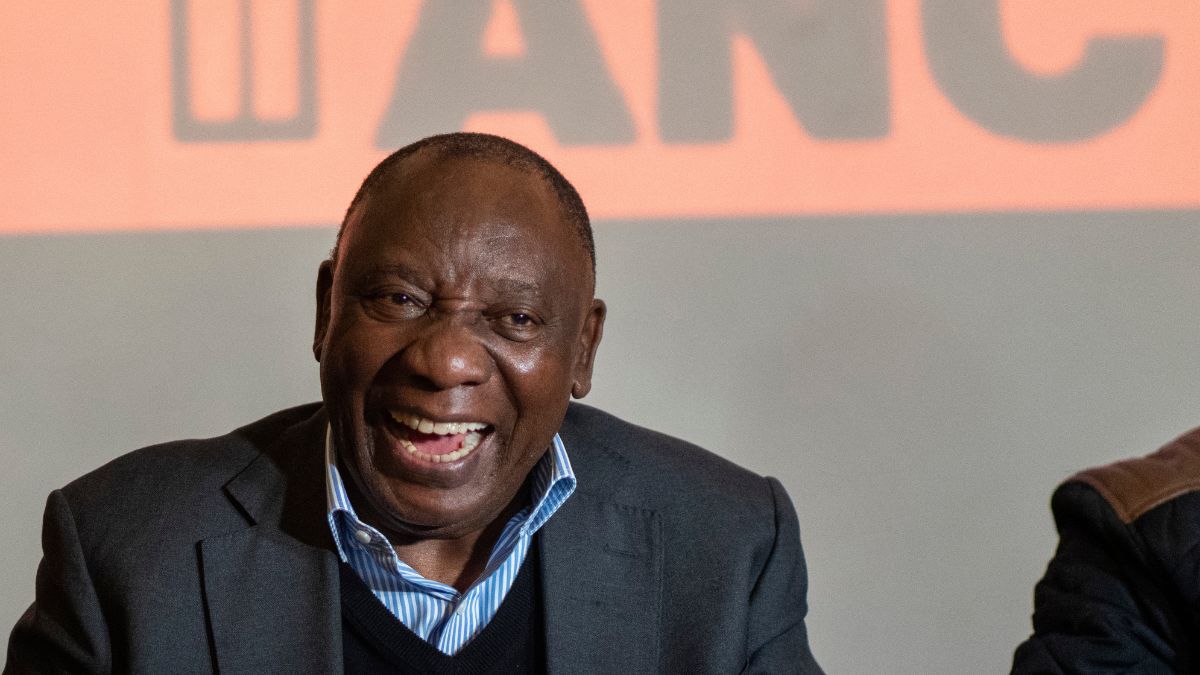Cyril Ramaphosa is poised for re-election as president of South Africa despite the African National Congress (ANC) experiencing its worst election result since the end of apartheid.
On Friday, Ramaphosa secured a deal with the opposition, particularly the white-led Democratic Alliance (DA) and at least two other smaller parties, to form a government of national unity.
This coalition arrangement comes after the ANC lost its parliamentary majority in the 29 May elections, garnering only 40 per cent of the vote. The DA, which won 21 per cent of the vote, along with the socially conservative Inkatha Freedom Party and the right-wing Patriotic Alliance, will join the coalition.
John Steenhuisen, leader of the DA, confirmed the coalition agreement: “Today marks the beginning of a new era where we put our differences aside and unite for the betterment of all South Africans.” Under the agreement, the DA will support Ramaphosa’s election for a second term and will receive the position of deputy speaker of parliament.
This coalition is a significant shift in South African politics, given the historical opposition between the ANC and the DA.
What political challenges is Ramaphosa facing?
Ramaphosa’s leadership has faced several challenges, including the “Farmgate” scandal in 2022, where a panel report suggested he may have committed misconduct involving a stash of cash found on his game farm.
Despite denying any wrongdoing and winning a new five-year term as ANC leader later that year, Ramaphosa’s position remains precarious. The ANC’s support plummeted due to widespread voter dissatisfaction over high unemployment, crime, and power cuts.
Impact Shorts
More ShortsPolitical analysts question whether Ramaphosa can serve a full second term, given the internal divisions within the ANC. His party rivals, some of whom have not fully reconciled with his leadership, may pose ongoing challenges.
Also Read: Zuma's MK party moves top court, seeks to block South African parliament citing vote-rigging
Moreover, Ramaphosa’s approach to governance has been criticised for its indecisiveness. Critics argue that his efforts to build consensus often lead to delays in crucial reforms, contrasting sharply with the decisiveness he displayed as a union leader in the 1980s.
How will the government be formed?
The formation of the new government involved intense negotiations. Talks continued through the night before Parliament’s first sitting since the election, with final details of the coalition agreement being hammered out just before the session commenced.
The chief justice oversaw the swearing-in of hundreds of lawmakers and the subsequent election of the speaker and deputy speaker of the National Assembly.
The process, which took place in a conference center near Cape Town’s waterfront due to the 2022 fire that gutted the National Assembly building, was lengthy and complex.
Fikile Mbalula, ANC Secretary-General, confirmed the coalition agreement in principle with the DA and other smaller parties: “We’ve engaged with the DA. We agree on the GNU [Government of National Unity].” Helen Zille, a senior DA politician, noted the intense nature of the negotiations: “At 2am we thought we had a final settlement and agreement. This morning a few issues have arisen and they are just trying to sort those out.”
How will this coalition impact South African politics?
The ANC’s decline from a dominant majority to needing a coalition partner marks a significant change in South African politics. Since the end of apartheid in 1994, the ANC has consistently held a clear majority, making parliamentary votes for president largely ceremonial.
However, the recent elections have introduced a new era of political uncertainty. Ramaphosa called for parties to join a government of national unity, reminiscent of Nelson Mandela’s inclusive approach in 1994.
In his address after the election, Ramaphosa stated the need for unity: “South Africans expect the parties for which they have voted to find common ground, overcome their differences and act together for the good of everyone. That’s what South Africans have said.”
Also Read: What happens if South Africa fails to form a coalition government?
Despite the challenges ahead, Ramaphosa’s ability to broker a coalition deal and secure re-election has highlighted his strategic acumen in navigating South Africa’s complex political landscape. The path forward will require significant policy concessions and adept negotiation skills to maintain the coalition’s stability and address the country’s pressing issues.
With inputs from agencies


)

)
)
)
)
)
)
)
)



